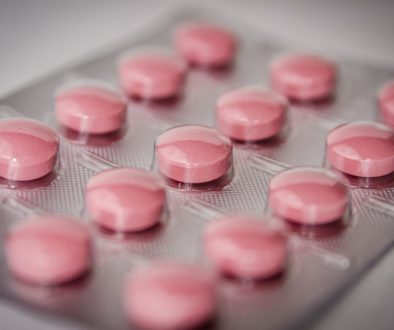How to Treat Thrush
This is not a topic most people like to talk about and understandably so. That’s probably why you’re here and not asking someone else what to do! Before we get to how to effectively treat thrush, let’s take a look at exactly what thrush is.
What is Thrush?
 Thrush is an overgrowth of a yeast / fungus known as candida albicans in your mouth. Most cases of thrush involve your tongue but can also involve other areas of your mouth. It is very similar to vaginal yeast infections. It usually causes a burning or itching sensation, a bad taste in your mouth, and white patches on your tongue and throughout your mouth. If you have some of the previous symptoms and are able to wipe the white areas off your tongue with a piece of gauze or a paper towel then it is likely thrush.
Thrush is an overgrowth of a yeast / fungus known as candida albicans in your mouth. Most cases of thrush involve your tongue but can also involve other areas of your mouth. It is very similar to vaginal yeast infections. It usually causes a burning or itching sensation, a bad taste in your mouth, and white patches on your tongue and throughout your mouth. If you have some of the previous symptoms and are able to wipe the white areas off your tongue with a piece of gauze or a paper towel then it is likely thrush.
What Causes Thrush?
Yeast thrives in dark, moist environments such as your mouth. Most of the time your body has no problem keeping the yeast cells in check in your mouth, however, certain situations can cause the yeast to grow rapidly leading to the condition known as thrush.
- Taking antibiotics. This kills the good bacteria in your mouth and allows the yeast to take over.
- Weakened immune system (such as in HIV). Your body can no longer effectively fight the yeast cells.
- Taking corticosteroids. These usually weaken your immune system.
- Taking medications that suppress your immune system such as medications for rheumatoid arthritis or after an organ transplant.
- Wearing dentures.
- Inhaled steroids (usually for asthma sufferers).
How To Treat and Prevent Thrush?
Thrush is usually treated with medications but there are also a lot of other things you can do to keep it in check.
- Standard medical treatment is usually with a Nystatin rinse or clotrimazole lozenges (prescription only). If these don’t work your doctor or dentist will usually prescribe Fluconazole which is an anti-fungal medication that you take as pill.
- Oftentimes a chlorhexidine mouthrinse can be helpful. This is by prescription only.
- If it is related to antibiotics, it will usually resolve on its own after you have stopped the antibiotics.
- If you wear a denture, it is important that you take it out at night and clean it. Never wear it 24 hours a day. A dirty denture can be the source of a thrush infection.
- Don’t use alcohol based mouthrinses.
- Brush / Scrub your tongue well when brushing your teeth.
- If you’ve had thrush in the past, throw out your toothbrush and get a new one. Your toothbrush can also be a source of infection.
- If you take inhaled steroids, rinse out your mouth with water after each use.
- Limit sugars and simple carbohydrates in your diet. Yeast cells feed primarily on this.
- There is some limited evidence that probiotics can be helpful. You can get these in pill form or by eating yogurt or other lactofermented foods.
- If you don’t have access to a doctor or dentist, you can use over the counter products with clotrimazole in them. Make sure it is only clotrimazole and no other ingredients. I’d recommend making a liquid suspension with them and swishing for several minutes a couple of times a day before spitting out. These formulations aren’t usually made for oral use so only do this if you have no other options and the previous suggestions haven’t worked.



